READY TO GET STARTED?
REQUEST A FREE ESTIMATE
Fill out the form below or call (888) 466-7849 for a free, no-obligation estimate.
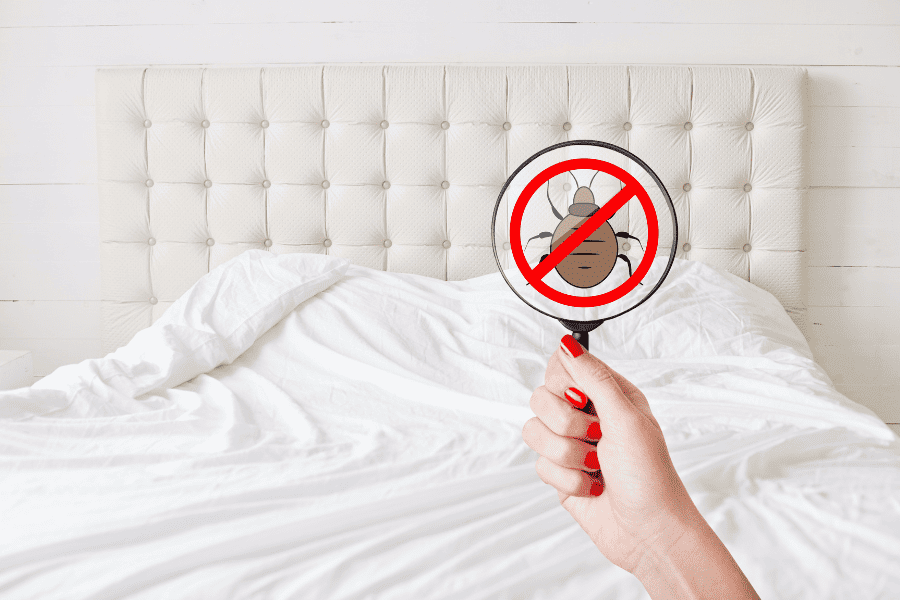
Bed bugs are tiny, invasive pests that can easily hitchhike a ride with you after traveling and infest your home. Bed bugs are notoriously difficult to get rid of once they’ve made themselves at home in your furniture, bedding, and even carpet. To avoid the headache and expense of a bed bug infestation, consider following these tips to prevent them after you’ve come home from traveling.
Upon your hotel arrival, consider inspecting your hotel for bed bugs and checking the bed bug registry before booking a room. After your stay, when packing up and leaving your hotel room, do a thorough inspection of all your items, including luggage, bags, and clothing you’ve traveled with. Check for any signs of bed bugs, such as live bugs, shed skins, and brown stains on the mattress or bedding. Pay close attention to the seams of your luggage, as bed bugs often hide in small crevices. If you find any evidence of bugs, throw out your luggage and purchase a new one or seal it in a plastic bag until you can properly treat it.
As soon as you get home from your trip, inspect and unpack your clothes outside instead of inside your home. After unpacking, wash all your clothes and bedding in hot water as soon as possible. Bed bugs cannot survive in temperatures above 120°F, so washing and drying your items in the hottest setting is one of the best ways to kill any hitchhiking bugs. If you cannot wash an item in hot water, seal it in a plastic bag and place it in the freezer for a few days to kill any bugs that could be hiding inside.
After unpacking and washing your clothes, it’s still important to inspect your home after a trip. Inspect the areas where you often store your luggage and clothing, such as closets, dressers, and bedside tables. Check for any signs of bed bugs.
Even if you take these precautions, bed bugs can still find their way into your home. Be vigilant and watch for any signs of bed bugs, such as bites on your skin, live bugs, or small bloodstains on your bedding. If you suspect that you have a bed bug infestation, it’s best to call your local pest control company for help. These bed bug experts will be able to provide you with a thorough inspection and a treatment and prevention plan.
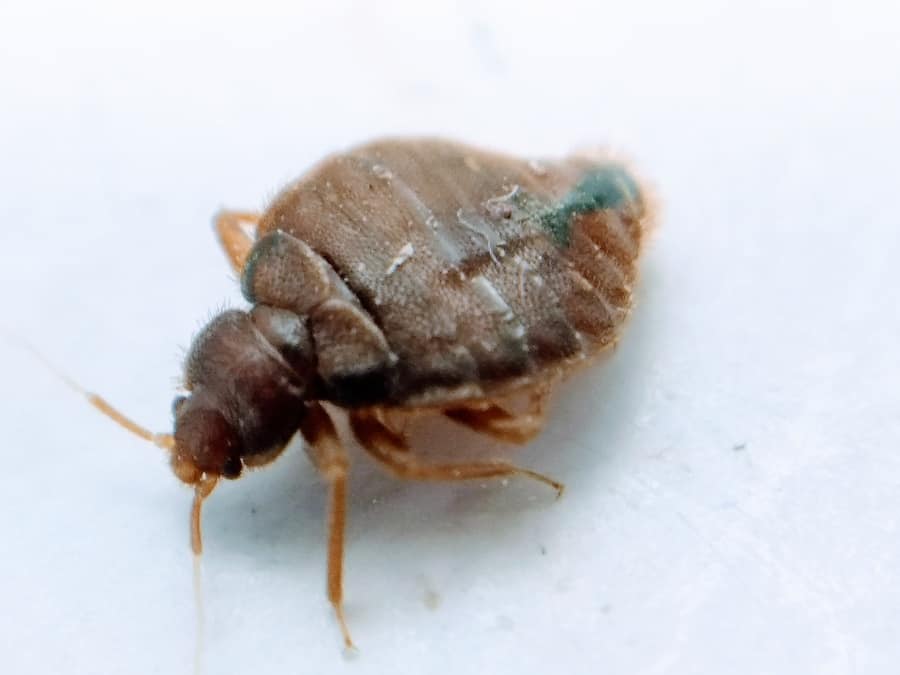
It’s the holiday season, the time of the year when a bed bug infestation can be devastating! Bed bug activity can be confused with only being active in the summer, but they are year-round pests. This means that while the weather cools off, bed bugs are still active during the winter and will be looking towards your Miami Lakes home for warmth! Here’s what you need to know about bed bugs, signs that they’ve infested, and how you can avoid them.
Bed bugs are extremely small, only growing to 3/16th of an inch in length. Before these pests feed, their appearance is brown in color and flat in body shape. After feeding, they become red, swollen, and longer in body length. These pests will often get around by hitchhiking through certain items. Adult bed bugs can be spotted by the human eye, but nymphs are harder to spot, as they are smaller and paler in appearance.
Bed bugs will infest several areas in the home, including behind baseboards, around mattress buttons, within bedding, electrical switch plates, picture frames, and more! There are certain warning signs of a bed bug infestation, including seeing their feces, casings, bloodstains on sheets, bites on yourself or family members, and their eggs. The best evidence, however, is seeing these pests crawling around in your home.
These pests are notorious hitchhikers, catching a ride inside your home through suitcases, old furniture, packages, clothes, and even houseguests. It’s important to be vigilant when traveling or having guests throughout the year. Check out our top preventative measures to avoid a bed bug infestation below,
If you’ve noticed signs of bed bugs or are looking to get ahead of bed bug prevention, consider reaching out to your local South Florida pest control company! These professionals will inspect your home, locate entry points, and recommend a treatment and prevention plan for your home.
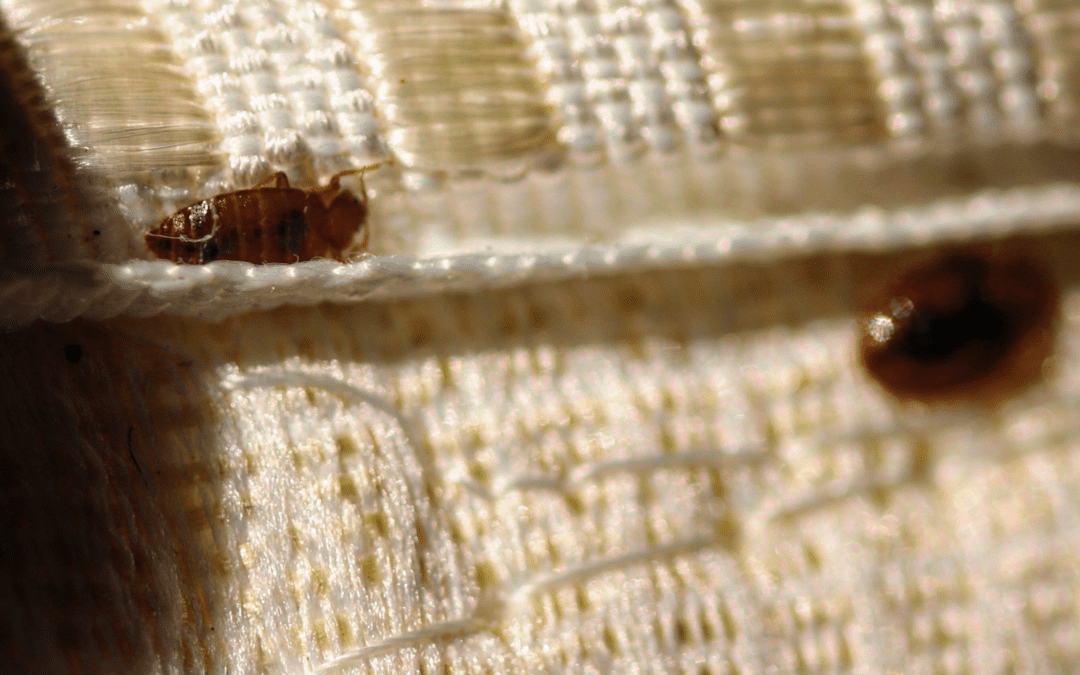
It’s time to unpack and get back to normal after all the summer vacations we were able to conquer. Hopefully, you came back to a stress-free situation that didn’t involve bed bugs; but if you weren’t one of the lucky ones, here are some tips to rid yourself of those unwanted pests.
Identify the pest to make sure it is indeed a bed bug. If you live in an apartment building, be sure to notify your landlord immediately, as they might have the responsibility of providing treatments. If you are in a single-family home, inspect all areas of your home to understand the extent of the infestation.
So, you have bed bugs, now what? Keep records throughout the whole process. Note dates and exact locations where these pests were found. This will help you track progress and to know where to target your removal efforts. You should be checking for at least a year after you’re done to make sure they are all gone.
Be sure to keep the infestation from spreading by implementing these tips:
Preparing for treatment is very important, whether treating bed bugs yourself or with professional help. If you plan on treating them yourself, ensure the methods you select are safe, effective, and legal. Avoid treatments that don’t work, like rubbing alcohol, kerosene, or gasoline, which are highly flammable. Sticky traps are also not effective in stopping bed bugs.
Some useful treatment solutions are:
The best solution for bed bugs is to contact your local pest control company. These professionals will have access to highly effective treatment methods. They will provide you with a bed bug control plan that is right for you and your property.
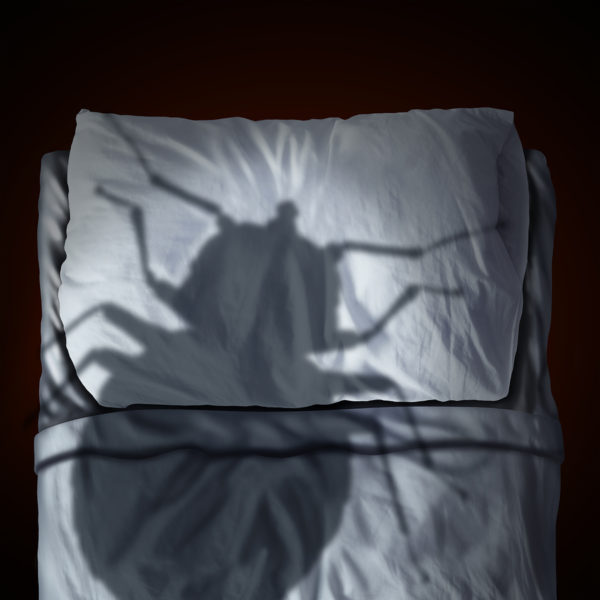
For many of us, the holiday season is a time of joy. It is also a time for travel as we look forward to spending time with family and friends. One thing that can damper our holiday season is dealing with unwanted visitors – no, not that cranky Scrooge of a relative – but bed bugs! Bed bugs are notorious hitchhikers, tagging along with unsuspecting travelers on their clothes and luggage. As we enter the biggest travel season of the year, check out these tips for preventing bed bugs and preserving your holiday cheer.
When you have guests staying with you, make sure you are prepared for the possibility of bed bugs being brought in with them. Don’t put your guests’ coats and bags on the bed. Instead, clean out a closet and use it to store their belongings. If you have to put their items on the bed, lay a sheet down first. It can be cleaned later. Place a plastic mat by the door for them to place their shoes on. If possible, provide luggage racks for them to use to store their belongings on. Use a bed bug mattress cover on any beds your guests will be using. If your guests will be sleeping on the couch, lay a sheet down over it first.
Once your guests leave, make sure to go behind anywhere they kept coats or luggage and clean. Vacuum closets where luggage and coats were kept. Vacuum the beds and couches where they slept. Seal the vacuum bags immediately and dispose of them outside. If you used sheets under luggage or on your couches, wash them in hot water and dry them on high heat. Wash the plastic mat you used for their shoes with hot, soapy water.
Whether you have guests who just left or you are the guest yourself, check your surroundings for signs of bed bugs. Inspect the mattress, box springs, and headboard, especially around edges and seams. Make sure to check couch cushions and chairs, as well. The most common sign of bed bugs is small, rust colored spots. Avoid using dresser drawers if possible. When you arrive at your destination, especially if you have been in a heavily populated area (subway, bus, airport, etc) check your shoes, jackets, hats, and luggage immediately. Be sure to check around zippers and seams. If you spot bed bugs, remove the clothing immediately and wash in hot water and dry on high heat. Vacuum luggage and seal and dispose of the vacuum bag immediately. If you are going to be a guest at a hotel or other lodging accommodation, you can also check the Bed Bug Registry, which is a free user-submitted database of bed bug reports across the US and Canada.
Once you arrive home from your travels, unpack your luggage and change your clothes immediately. Wash everything in hot water and dry on high heat. The heat of the water and air from the dryer will kill any bed bugs that may be lingering around. Once unpacked, vacuum or steam your luggage and seal it in plastic bags or containers. Store your luggage outside the home (in a garage, shed, etc) until you need to use them again.
Bed bugs are resilient and can be extremely difficult to get rid of. If you suspect you have a bed bug problem, call a pest control professional who can come in and provide you with a thorough evaluation and comprehensive treatment plan.
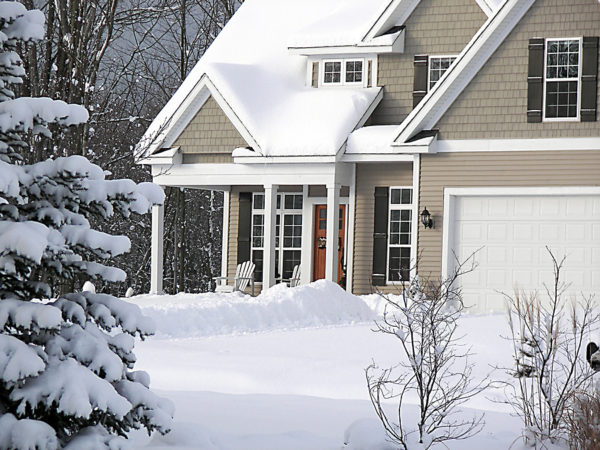
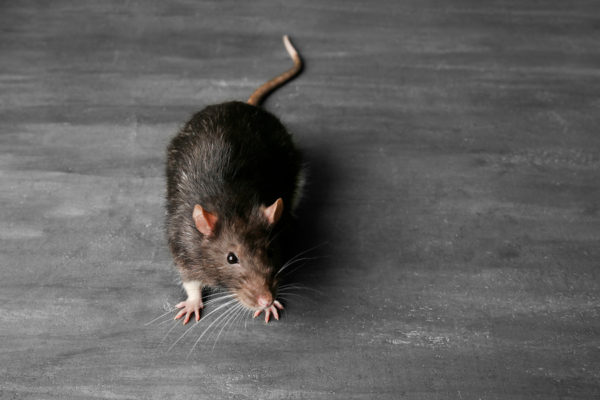
Mice and rats will seek shelter and warmth during the cold winter months. They can fit through very small openings so eliminating entry points is an effective way at preventing them from coming into your home. Eliminating food and water sources is also effective. Replace damaged roof tiles and fill any cracks in the roofing cement. Keep your attics and garages tidy and clutter free. Store your items in plastic containers versus cardboard. Install chimney caps to keep them from nesting inside your chimney. Cover your air vents with wire mesh. Store food in airtight containers and don’t leave any dirty dishes in the sink. Empty your trash regularly and make sure trash can lids are secure. Don’t leave trash bags out in the open. Clean countertops, stoves, and behind the fridge regularly and sweep and vacuum often. Seal holes around pipes using caulk or expanding foam. Keep branches and shrubbery trimmed away from the house and store firewood at least 20 feet from the home. Don’t leave pet food out overnight and seal unused pet food in airtight containers. Replace weatherstripping on windows and doors.
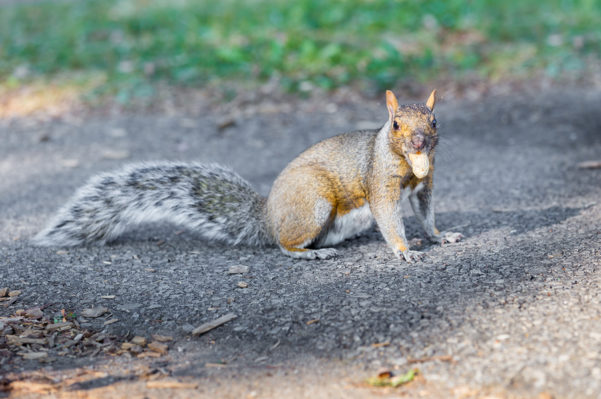
Squirrels like to frequent attics and chimneys to make their nests. Cover chimneys with chimney caps. Keep shrubbery trimmed away from the house and cut down overhanging limbs. Replace rotting wood and seal any entry points including where pipes and utilities come into the home and overhanging eaves.
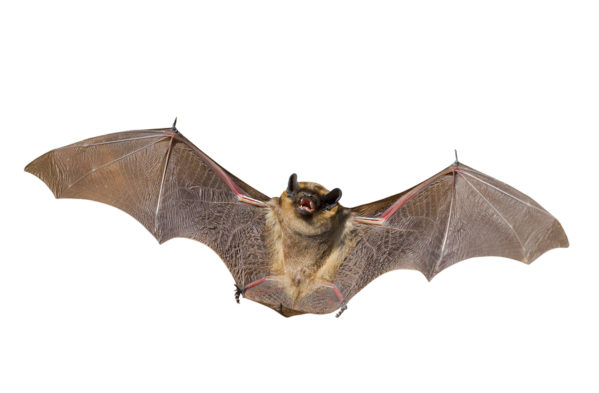
Birds and bats can and will come into your home through any opening in the exterior of the house. Chimneys should be sealed with chimney caps. Inspect the outside of your home for any openings and seal them with steel wool or foam rubber. Keep doors and windows shut as much as possible. Use screens if you must have your windows open and inspect the screens regularly for damage.
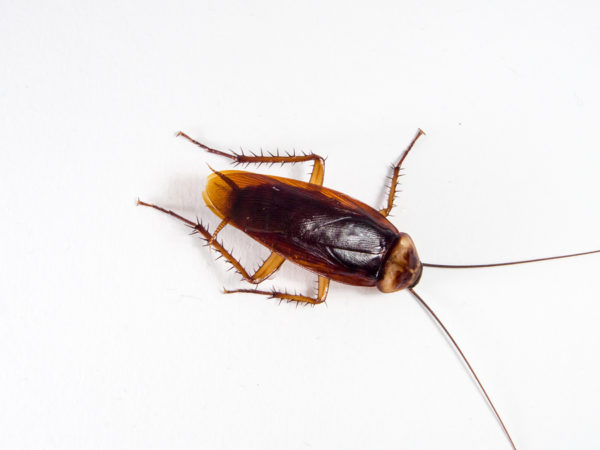
Cockroaches are attracted to moisture and excess water. They will also enter your home in search of food. Check your pipes regularly for leaks and repair quickly. Remove obstructions in pipes to prevent bursting and leaks. Seal around pipe entry points into the home. Clean your gutters. Store items in plastic containers rather than cardboard and keep them off the floor. Store food (including pet food) in airtight containers. Don’t leave dirty dishes in the sink. Wipe down countertops and sweep and vacuum regularly. Clean under sinks, in stoves, and behind appliances regularly. Empty the trash regularly.
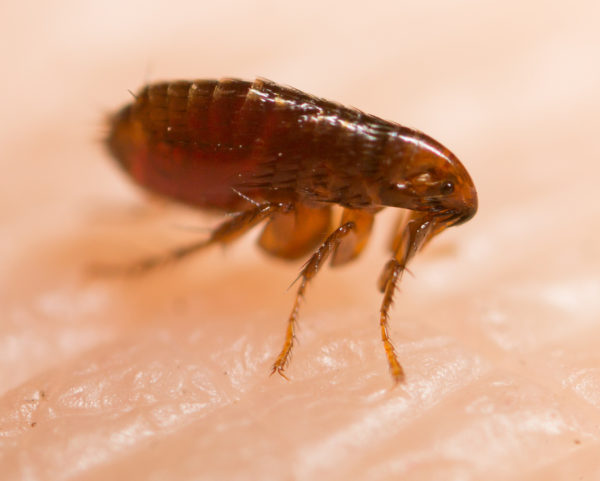
Fleas will hitch a ride into your home on your pets. The first step in preventing fleas is to treat your animals with a flea preventative, whether through medicine or shampoos or both. Check your rugs, carpets, furniture, and pet bedding for signs of fleas. Wash your pet’s bedding and other items in hot water frequently. Vacuum regularly and be sure to empty the vacuum each time you use it. Keep your grass mowed and your shrubs trimmed as this gives fleas less room to hide. Fleas can come into your yard on wild animals so don’t leave pet food out overnight to tempt them to enter your yard. Seal entry points into the house or under porches to prevent them from hiding there, as well.
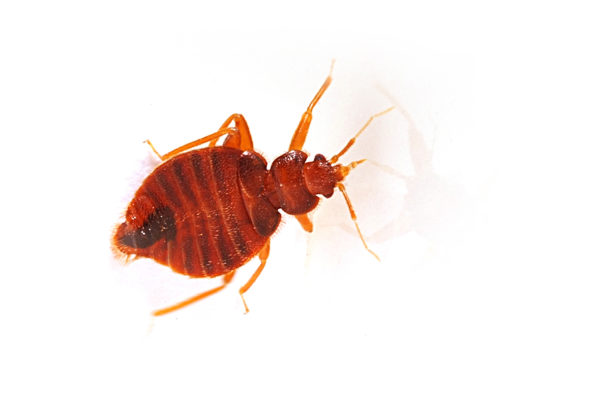
Bed bugs can come into your home in luggage (be vigilant about preventing bed bugs when traveling!) on furniture, bedding, boxes, and even clothing. Check luggage, furniture, bedding, etc. carefully before bringing it into your home. Use a mattress cover that encases the mattress and the box springs. Vacuum frequently. Wash and dry bedding on high heat regularly. Do the same with clothing after traveling.
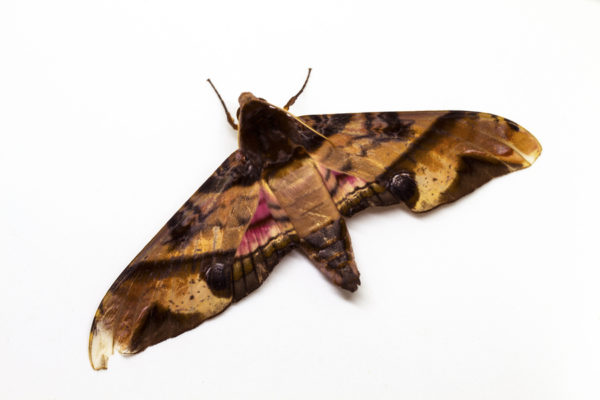
Moths are attracted to wool, fur, and upholstered furniture. Be sure to check your clothes regularly for signs of damage. Wash clothes and store them in sealed bags. Use moth balls. Vacuum and clean the insides of storage areas including wardrobes, closets, and drawers regularly.
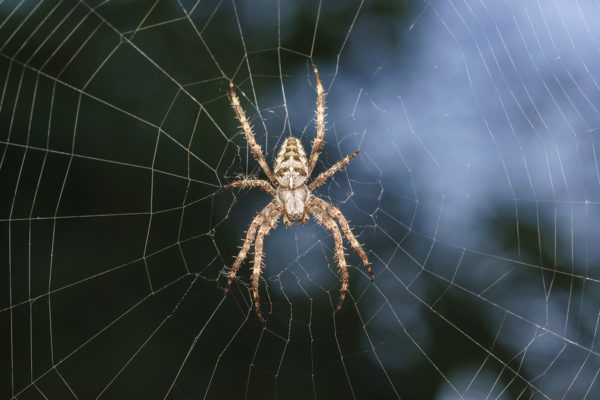
Spiders like to hide in areas of the home that are seldom used. Store seldom used items in sealed plastic containers. Seal cracks and holes in the exterior of your home to keep them from coming inside. Keep your outdoor lights off and use blinds or curtains to block the inside light. Spiders aren’t attracted to the lights but other insects are which the spiders feed on. This eliminates a food source for spiders. Keep shrubbery trimmed away from your home. Keep the grass mowed and remove debris from around your home. Sweep and vacuum regularly. Clear out as much clutter as possible. Vacuum spiders and spider webs.